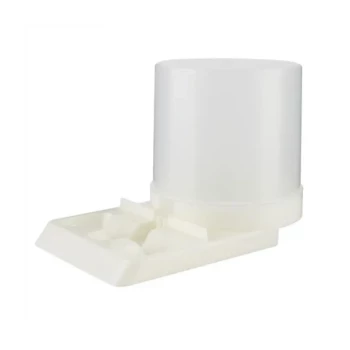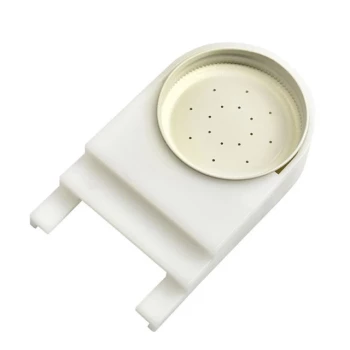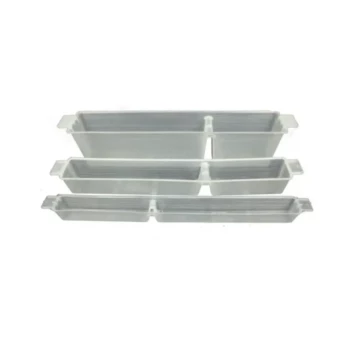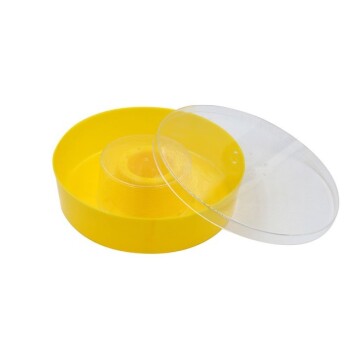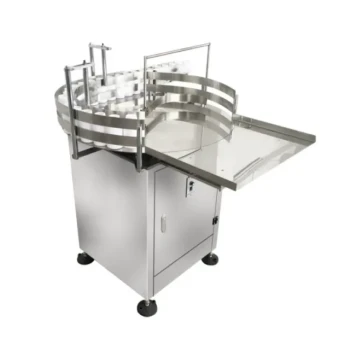In recent years, one beekeeping strategy that has gained significant popularity is the bulk dry feeding of pollen substitute. This method involves providing a dry, powdered nutritional supplement for honey bees in an open-air setting, allowing them to collect it as needed, much like they would natural pollen.
The core insight is that beekeepers are increasingly intervening to manage honey bee nutrition proactively. Bulk dry feeding of pollen substitute is a popular, low-labor method to ensure colonies have the protein they need to build their populations, especially when natural pollen is scarce.
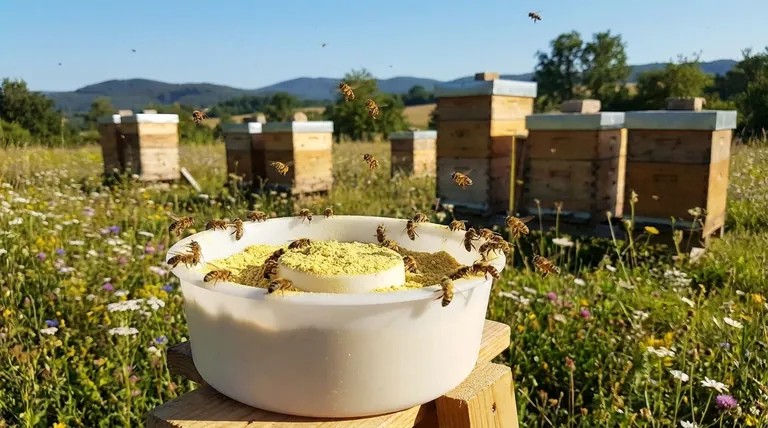
The "Why" Behind Supplemental Feeding
The user's question about a popular strategy points to a deeper need: understanding the modern challenges of beekeeping and the solutions being adopted. The rise of supplemental feeding isn't accidental; it's a direct response to nutritional gaps that can threaten colony health and survival.
The Role of Protein in a Colony
A honey bee colony is a complex organism, and its health is directly tied to nutrition.
Natural Pollen is the Ideal Pollen is the honey bee's primary source of protein, lipids, vitamins, and minerals. It is essential for raising brood (young bees) and for the development of young worker bees.
Pollen Substitute as a Bridge Pollen substitutes are commercially or home-made feeds designed to provide a similar nutritional profile. They are not a permanent replacement for real pollen but serve as a critical bridge during times of need.
When Natural Forage is Insufficient
Beekeepers turn to pollen substitutes when the environment cannot support the colony's needs.
Early Spring Buildup This is the most common time for feeding. The queen is laying eggs to build the colony's population for the main nectar flow, but natural pollen may not yet be abundant. Feeding encourages rapid population growth.
Late Summer and Fall After the main honey flow, pollen can become scarce. Feeding at this time helps the colony raise healthy "winter bees," which have the fat stores necessary to survive the long, cold months ahead.
Periods of Dearth or Monoculture Drought, extreme weather, or placement in agricultural areas with a single crop (monoculture) can create periods where little to no natural pollen is available.
Understanding the Trade-offs of Bulk Dry Feeding
While popular and effective, bulk dry feeding is not without its limitations and considerations. It is a specific tool for a specific purpose.
The Advantages of This Method
Low Labor Requirements Compared to making and placing individual pollen patties inside each hive, setting up a bulk feeder for an entire apiary is significantly faster and less disruptive to the bees.
Mimics Natural Foraging The bees actively fly to the feeder and collect the powder, which is a more natural behavior than consuming a patty inside the dark hive.
The Disadvantages and Risks
Less Targeted Nutrition With bulk feeding, you cannot control which colonies take the feed. Stronger colonies may hoard it, while weaker colonies that need it most may not get their share. Pollen patties, in contrast, are placed directly in the hives that need them.
Exposure to Weather The feeder must be designed to keep the dry substitute protected from rain and moisture, as wet substitute can spoil and become useless or harmful.
Potential for Disease Transmission Open feeders can be visited by bees from other apiaries, creating a potential vector for spreading diseases if not managed carefully.
Applying This to Your Apiary
The decision to use bulk dry feeding of pollen substitute depends entirely on your specific goals and the condition of your colonies and local environment.
- If your primary focus is rapid spring buildup in a large apiary: Bulk dry feeding is an efficient, low-labor strategy to stimulate brood rearing across all your hives simultaneously.
- If your primary focus is supporting a few weaker colonies: A more targeted approach, like providing internal pollen patties, is a better choice to ensure those specific colonies get the nutrition they need.
- If your primary focus is preparing for winter in late fall: Bulk feeding can help ensure the entire apiary has the protein needed to raise strong, healthy winter bees.
Ultimately, understanding when and why to supplement your bees' diet is a key skill in modern beekeeping.
Summary Table:
| Strategy | Key Benefit | Best Use Case |
|---|---|---|
| Bulk Dry Feeding | Low labor, mimics natural foraging | Rapid spring buildup in large apiaries |
| Pollen Patties | Targeted nutrition for specific hives | Supporting weaker colonies |
Ready to optimize your apiary's nutrition with reliable bulk feeding solutions?
As a trusted wholesale supplier to commercial apiaries and distributors, HONESTBEE provides the durable equipment and high-quality pollen substitutes you need to implement this popular strategy effectively. We help you support strong colony growth and improve overwintering success.
Contact our expert team today to discuss your bulk feeding requirements and wholesale pricing.
Visual Guide
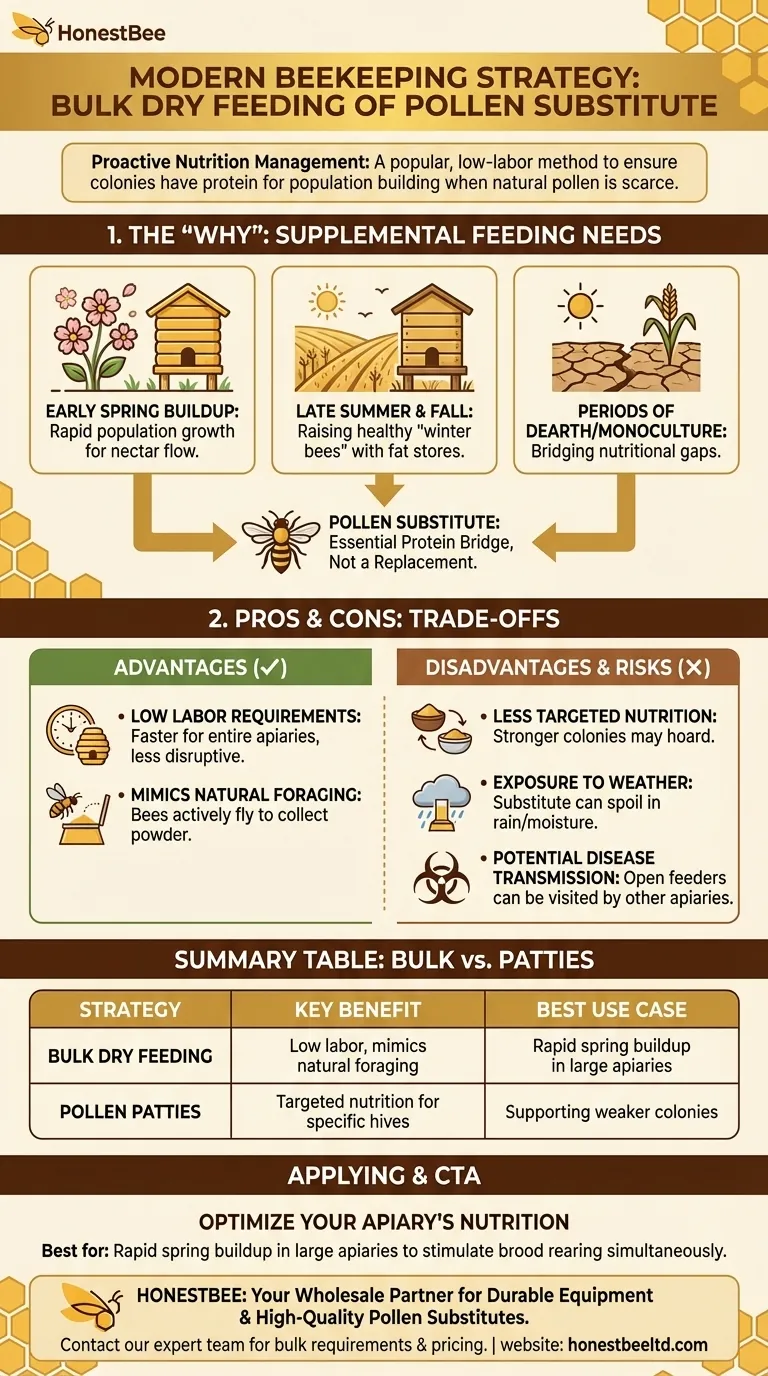
Related Products
- Rapid Bee Feeder White Plastic 2L Round Top Feeder for 8 or 10-Frame Bee Hives
- HONESTBEE Entrance Bee Feeder Professional Hive Nutrition Solution for Beekeeping
- HONESTBEE Professional Hive Top Bee Feeder Feeding Solution
- Classic Boardman Entrance Bee Feeder Hive Front Feeding Solution
- HONESTBEE Entrance Bee Feeder Efficient Hive Front Liquid Feeding Solution for Beekeeping
People Also Ask
- What is the primary function of hive feeders for new package bees? Boost Colony Survival and Growth
- What is the advice regarding feeding bees to limit brood production based on? Managing Prolific Bee Strains
- How should the round hive top feeder be positioned? Master Internal Feeding for Stronger Colonies
- What are the recommended sugar-to-water ratios for making sugar syrup for bees? Optimize Your Hive's Health
- What is the best thing to feed bees? A Guide to Supplemental Feeding for a Thriving Hive

